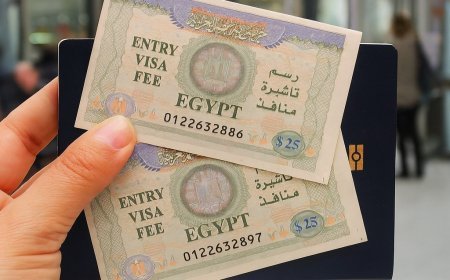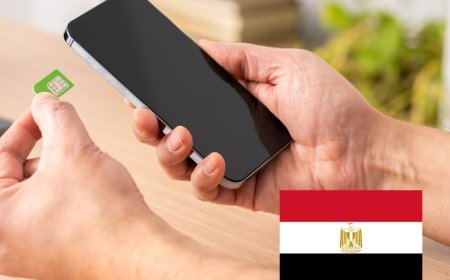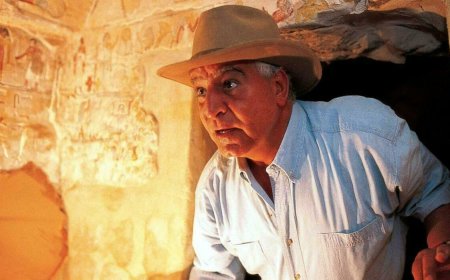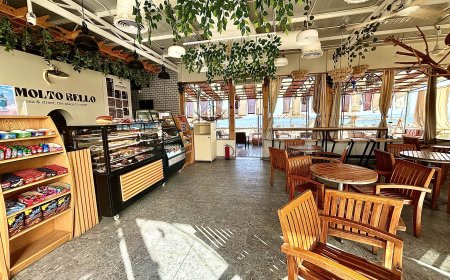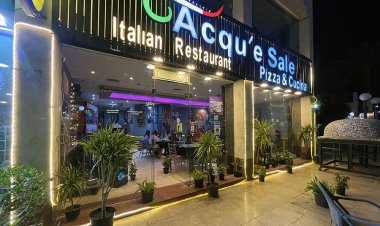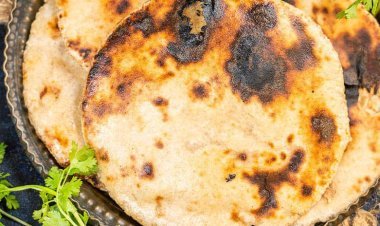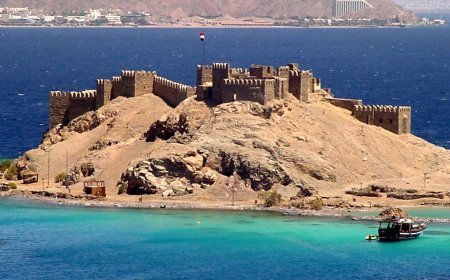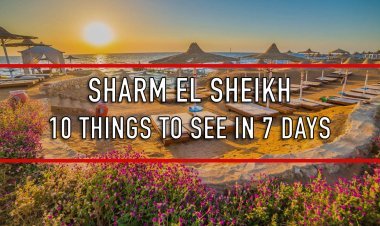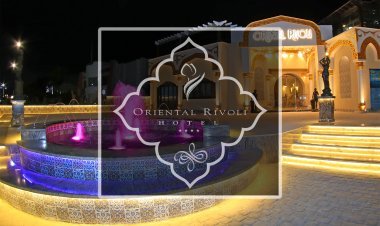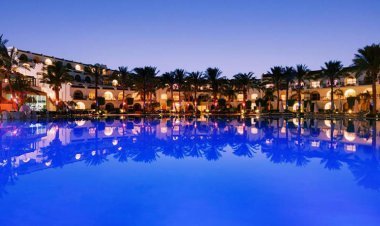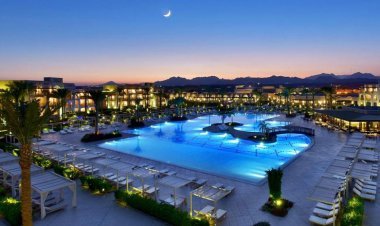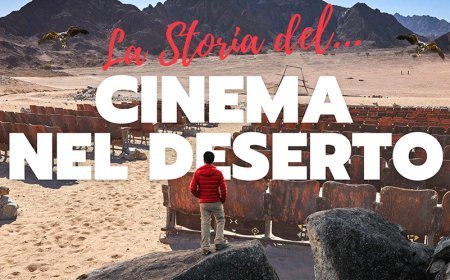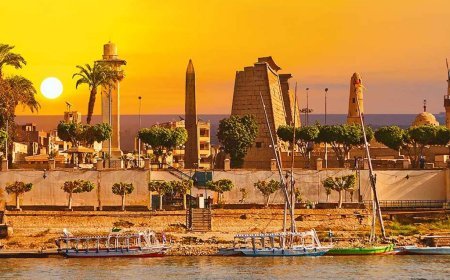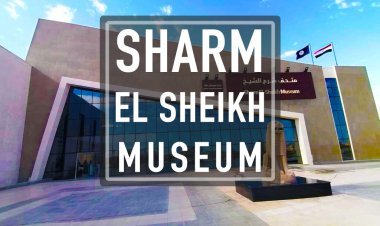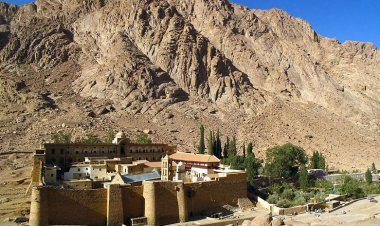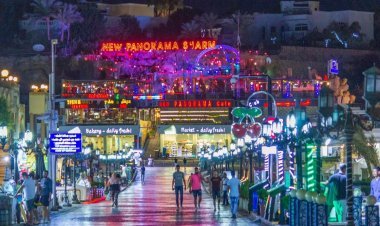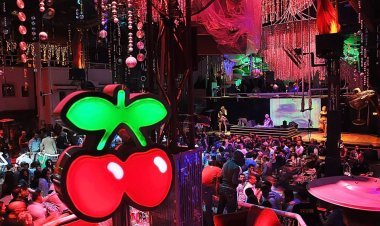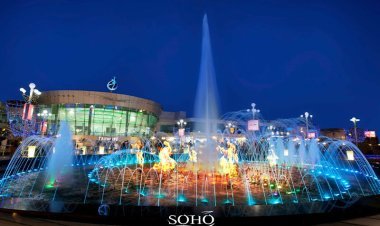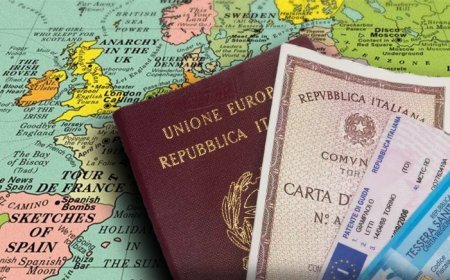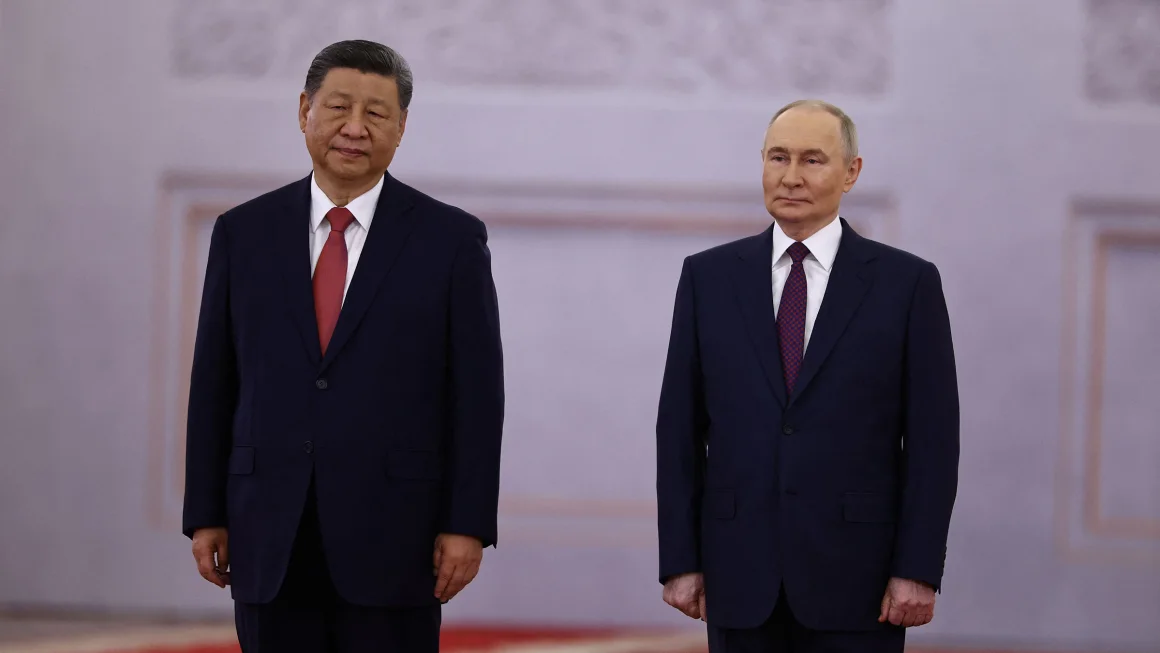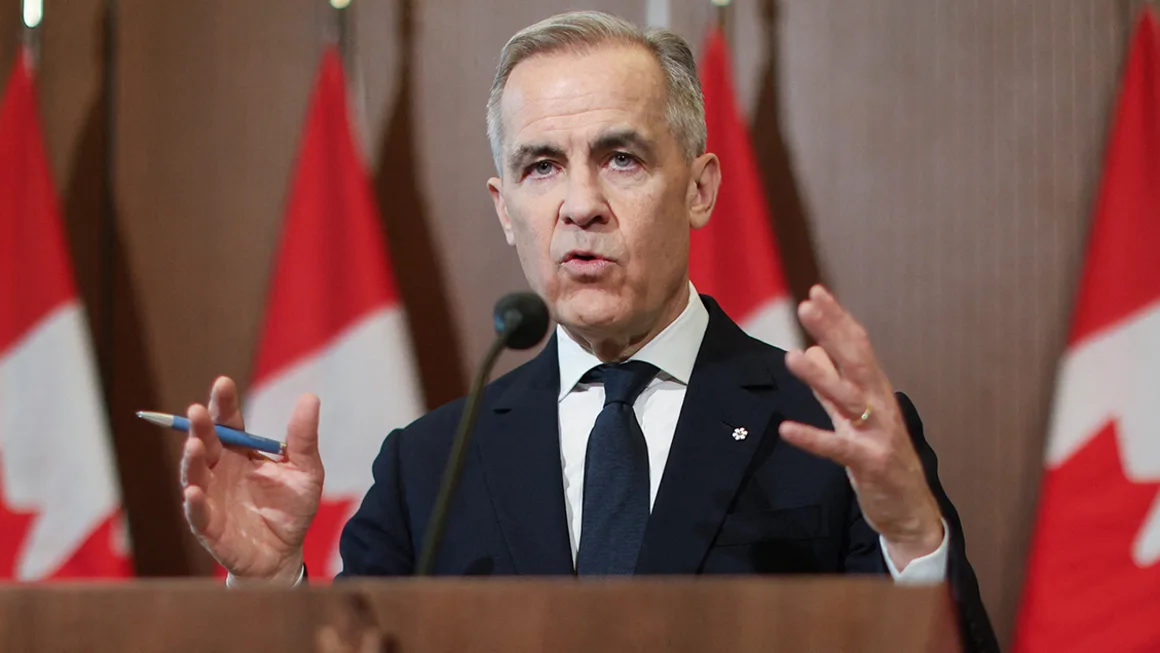In exclusive interview, Ukraine’s Special Representative for the Middle East and Africa discusses ties with Egypt, Gaza conflict and more
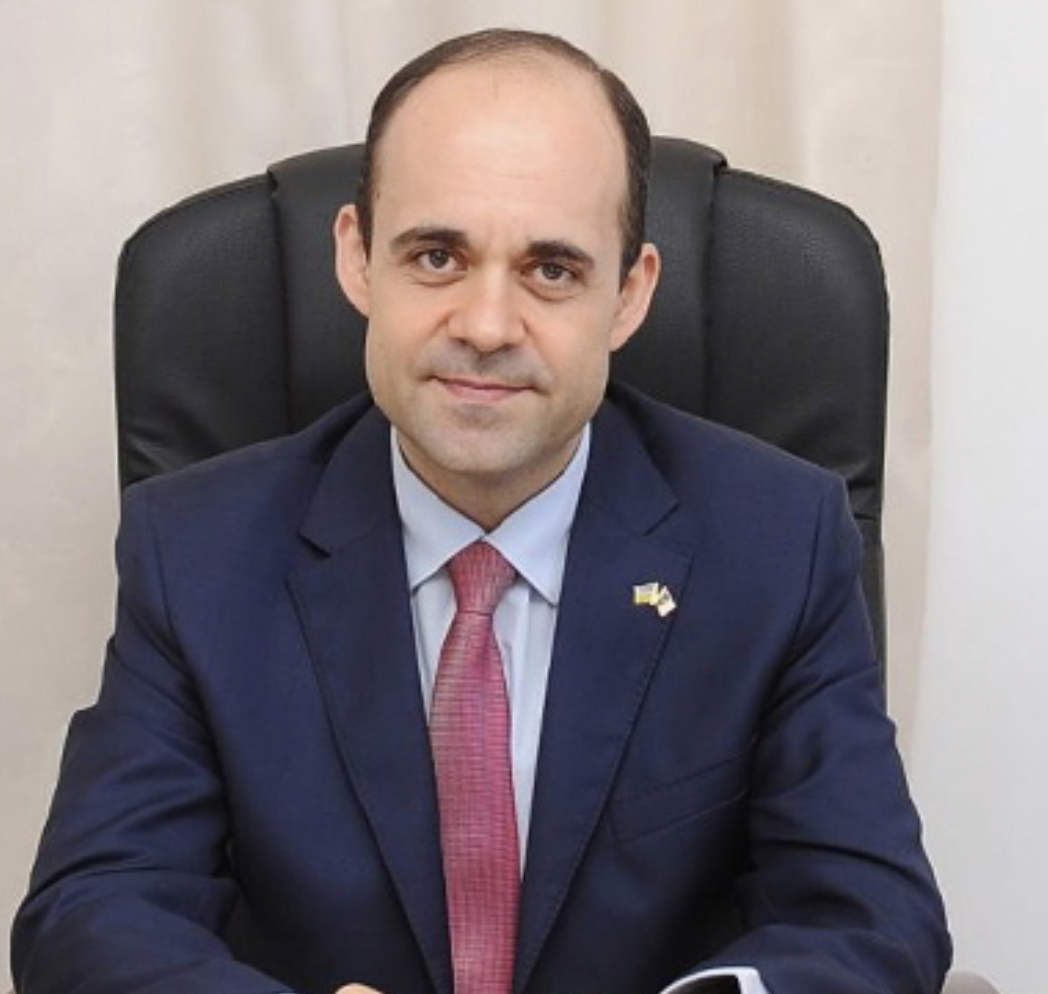
Ukraine’s Special Representative for the Middle East and Africa, Maksym Subkh, said that his country is fighting a war for survival and refuses to negotiate with Russia.
In his exclusive interview, he said that Egypt is a friendly nation and the largest trading partner for Ukraine.
He also thanked President Sisi’s call for peace at the Climate Summit in Sharm El-Sheikh, and has backed a two-state solution to end the conflict between Palestine and Israel.
■First, let us get to know the Ukrainian envoy to the Middle East.
I am of Syrian origin, to a father who holds Ukrainian nationality. I spent my childhood and primary school in Damascus, and left when I was 10 years old. Then I completed my secondary and university studies at the College of Oriental Languages in Ukraine, and worked as a lecturer. Afterwards, I joined the diplomatic corps and worked in many Arab countries, including the Emirates and Qatar.
I succeeded in obtaining a doctorate in contemporary history on political and economic transformations and political reforms in the Arabian Gulf. In 2018, I was appointed ambassador to Algeria, and in 2022 I was assigned the duties of the Ukrainian envoy to the Middle East, out of the Ukrainian political leadership’s keenness to communicate with Arab and Middle Eastern countries.
■ Even though you are Syrian-Ukrainian, why did you break off your relationship with Damascus?
Syria declared its absolute support for Russia in its war on Ukraine, and recognized the areas that Moscow announced as annexed in violation of international law.
Despite this, I am personally pained by what Syria is witnessing, and I wish for it to restore its security and stop the bloodshed.
We also support Damascus in the UN resolutions regarding Syria’s sovereignty over the occupied Golan.
■ What are your reasons for visiting Cairo?
This visit to Cairo is very important for our country, as I met with the Assistant Minister of Foreign Affairs for Arab Affairs, Ambassador Mohamed al-Badry, and Minister Fayza Aboul Naga, President Sisi’s advisor for national security, where we discussed all manner of issues.
Ukraine is keen to consolidate relations with Egypt in various fields, as it is our largest trade partner.
We have relations with Egypt on the historic and human level, and there is cooperation in the sectors of tourism, agriculture, higher education, and petroleum.
Prior to the outbreak of the war, 4,000 Ukrainian students were studying in Egypt.
My visit focused on the necessity of reviving the projects agreed upon before the war, even though there are ongoing projects that have not been completed.
There are joint projects to extract petroleum, and then there is the matter of the grain export agreement.
Egypt is a friendly country and will remain a top priority in Ukrainian foreign policy.
Our relationship is historical and Egypt is still a distinguished tourist destination. There is no Ukrainian who has not visited Egypt as a tourist. As for education, the conditions are suitable for the return of students. Before the war there were 4,000 students, and now there are 1,200 in some remote areas.
We are working to be present in Africa by opening 10 new embassies, including some that will be opened at the end of this year, as we believe that dialogue with Arabs and Africa is very important.
■ What are the latest developments regarding the war that has been going on for 21 months?
Ukraine is a country with limited military capabilities facing a nuclear state with superior military might.
Despite this, we liberated 50 percent of the lands that were controlled by the Russians, thanks to the efforts of the Ukrainian army and its president, who did not flee or seek refuge outside the country, despite many offers, but preferred to remain in the country.
There are seven million refugees, and we are going through a phase of Neo-colonialism.
Ukraine is fighting an existential war for survival, and Russian President Vladimir Putin will not stop before eliminating the Ukrainian state.
Russia does not want us to survive.
■ We want clarification from you about the Ukrainian counterattack. Did it fail, as Russia and international reports say?
There are those who talked about a “dead end,” which is freezing the conflict and war, and accepting the fait accompli.
As for the continuation of the fighting, it cannot be called a failure. The war is continuing, and our hearts break for the victims.
Russia targets military and civilian sites, while it has completely destroyed the electricity generation network, having decided that the Ukrainian people will die from the cold and not from bombing, so the counterattack was not a failure.
■ The ongoing question since February 24, 2022: When will the war end? Why is there no negotiation?
-No one can predict when the war will end, but our conditions are clear: Russia must commit to a complete and unconditional withdrawal from all the lands it occupied, and work to restore sovereignty according to its borders drawn out in 1991, including the Crimean Peninsula.
We will not make any concessions, as the Russian war is a clear violation of international legitimacy and laws.
We cannot bargain on the ground, and the Russian withdrawal is not enough. Rather, withdrawal entails paying compensation. The solution is to stop the aggression, and there is no door to negotiation.
We also do not want to pass on this war to future generations.
■ Is the ongoing war a depletion of military equipment and, above all, human resources?
The Russians resort to attrition tactics. Therefore, we do not want a temporary truce or peace so that Russia does not exploit it to rearrange its armies and launch a large-scale attack.
The Russian military operation changes from time to time, and negotiations are between two equal parties, so we refuse because we are not equal and negotiations will be purely in Russia’s interest.
■ Russia has accused Ukraine of a “field war” related to the 2014 coup.
Let me answer this with a question for the Russians – who gave Russia the right to reject Ukrainian laws and legitimacy, which resulted in real elections?
We affirm that Russia or any country, even the US, is not a guardian of Ukraine. Its decision is in the hands of its people, and any mistakes that occurred in the past do not mean that Russia is allowed us to attack us.
■ We hear from time to time about coup attempts against President Zelensky, and he himself spoke about that. If true, why did he not reveal the documents and evidence, and why were the elections postponed?
One of Russia’s goals is to liquidate President Vladimir Zelensky, having threatened to bomb decision-making centers in Ukraine. Despite this, intelligence is working to repel those attempts.
As for the decision to postpone the presidential elections, it is due to the fact that the country is going through martial law, and to ensure the integrity of the elections, they must be postponed so that they are not challenged and its integrity remains intact.
In addition, there are difficulties related to voting for soldiers and officers participating in hostilities on the front, as well as displaced persons and refugees
■ Why did Ukraine not take the initiative to negotiate?
The peace formula announced by the Ukrainian president consists of 10 items, the most important of which is the restoration of Ukrainian lands and ensuring non-Russian interference.
We respect all countries that have presented initiatives or called for negotiation and peace, especially Egypt, and we thank President Abdel Fattah al-Sisi for his courageous decision that surprised the world at the climate summit in Sharm El-Sheikh, when he call for peace.
Regarding China’s initiative, it reached us a year after the war broke out in February 2023, and we found that much of what was mentioned in all the initiatives were identical to the Ukrainian peace formula, but there is a disagreement in the order of priorities.
■ From time to time we hear about conflicting information regarding the numbers of dead soldiers between the two armies. What is your data? How much does your country need reconstruction?
The information regarding the Ukrainian army is confidential and we will not announce it until after the end of the war. As for our estimates, the Russian army has lost about 300,000 soldiers and officers. Regarding civilians, they are in the thousands, but there are no accurate statistics as the majority of them are among children. We want more weapons and financial support from countries.
Whoever helps support Ukraine maintains its existence, and the fall of Ukraine means the fall of Europe. Moscow is interested in entering into a war of attrition.
We will need about 600 billion dollars for reconstruction.
■ The Islamic world describes your country’s stance towards the Gaza war as bad, especially since President Zelensky announced his support for Israel. Didn’t the scenes of dying children resonate with you while your nation is in a state of war?
What was issued by the Ukrainian Foreign Ministry and President Zelensky about the confrontation and war between Hamas and Israel is specifically a rejection of the Hamas movement.
Despite that we said that Ukraine is committed to the two-state solution and the establishment of a Palestinian state on the 1967 borders, and Ukraine is with international law and is not biased towards Israel.
We are against forced displacement and know that it will not help end the conflict.
■ Hamas is a resistance faction and defends its land. Your president is Jewish. Isn’t his support for Tel Aviv therefore support for a religious war?
We do not support religious wars, and there is no Ukrainian bias towards one party over another. And let me make something clear that President Zelensky has participated in many Islamic events and would have made Muslim holidays an official holiday, but the war postponed those decisions.
We also have a Muslim Defense Minister of Tatar origin, which is a minority.
While Ukraine’s relationship with Israel is strong and there is a trade exchange of about one billion dollars, Palestine also has a relationship with Ukraine and there is a large community present.
■ Don’t you agree that the war on Gaza has impacted your country?
Yes, I agree with you. The war has affected us in all fields. Therefore, the government is negotiating with major countries about the importance of continuing support, and despite that, we expect it to decrease significantly and affect the confrontations against Russia, and it has a direct negative reality.
The post In exclusive interview, Ukraine’s Special Representative for the Middle East and Africa discusses ties with Egypt, Gaza conflict and more appeared first on Egypt Independent.
What's Your Reaction?
 Like
0
Like
0
 Dislike
0
Dislike
0
 Love
0
Love
0
 Funny
0
Funny
0
 Angry
0
Angry
0
 Sad
0
Sad
0
 Wow
0
Wow
0
